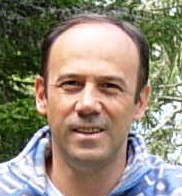Studying at the University of Verona
Here you can find information on the organisational aspects of the Programme, lecture timetables, learning activities and useful contact details for your time at the University, from enrolment to graduation.
Academic calendar
The academic calendar shows the deadlines and scheduled events that are relevant to students, teaching and technical-administrative staff of the University. Public holidays and University closures are also indicated. The academic year normally begins on 1 October each year and ends on 30 September of the following year.
Course calendar
The Academic Calendar sets out the degree programme lecture and exam timetables, as well as the relevant university closure dates..
| Period | From | To |
|---|---|---|
| Primo Semestre Triennali | Sep 18, 2017 | Jan 12, 2018 |
| Secondo Semestre Triennali | Feb 19, 2018 | Jun 1, 2018 |
| Corsi intensivi estivi (Alba di Canazei) | Jul 9, 2018 | Aug 3, 2018 |
| Session | From | To |
|---|---|---|
| Prove Parziali Primo Semestre | Nov 6, 2017 | Nov 10, 2017 |
| Esami Sessione Invernale triennali 2017 | Jan 15, 2018 | Feb 16, 2018 |
| Prove Parziali Secondo Semestre | Apr 9, 2018 | Apr 13, 2018 |
| Esame sessione estiva triennali | Jun 4, 2018 | Jul 6, 2018 |
| Esami sessione autunnale 2018 | Aug 27, 2018 | Sep 14, 2018 |
| Session | From | To |
|---|---|---|
| Lauree sessione autunnale (validità a.a. 2016/17) | Nov 27, 2017 | Nov 28, 2017 |
| Lauree sessione invernale (validità a.a. 2016/17) | Apr 4, 2018 | Apr 6, 2018 |
| Lauree sessione estiva (validità a.a. 2017/18) | Sep 10, 2018 | Sep 11, 2018 |
| Period | From | To |
|---|---|---|
| All Saints Day | Nov 1, 2017 | Nov 1, 2017 |
| Immaculate Conception | Dec 8, 2017 | Dec 8, 2017 |
| attività sospese (Natale) | Dec 23, 2017 | Jan 7, 2018 |
| Easter break | Mar 30, 2018 | Apr 3, 2018 |
| Liberation Day | Apr 25, 2018 | Apr 25, 2018 |
| attività sospese (Festa dei lavoratori) | Apr 30, 2018 | Apr 30, 2018 |
| Labour Day | May 1, 2018 | May 1, 2018 |
| Festa Patronale | May 21, 2018 | May 21, 2018 |
| attività sospese estive | Aug 6, 2018 | Aug 24, 2018 |
Exam calendar
Exam dates and rounds are managed by the relevant Economics Teaching and Student Services Unit.
To view all the exam sessions available, please use the Exam dashboard on ESSE3.
If you forgot your login details or have problems logging in, please contact the relevant IT HelpDesk, or check the login details recovery web page.
Academic staff
Baronchelli Adelaide
 adelaide.baronchelli@univr.it
adelaide.baronchelli@univr.it
 doriano.benedetti@univr.it
doriano.benedetti@univr.it
 roberto.fini@univr.it
roberto.fini@univr.it
 tamara.fioroni@univr.it
tamara.fioroni@univr.it
 simona.gamba@univr.it
simona.gamba@univr.it
 francesca.rossignoli@univr.it
francesca.rossignoli@univr.it
 0444 393941 (Ufficio Vicenza) 0458028261 (Ufficio Verona)
0444 393941 (Ufficio Vicenza) 0458028261 (Ufficio Verona)
 fabio.sartori@univr.it
fabio.sartori@univr.it
 giuseppe.trabucchi@univr.it
giuseppe.trabucchi@univr.it
Study Plan
The Study Plan includes all modules, teaching and learning activities that each student will need to undertake during their time at the University.
Please select your Study Plan based on your enrollment year.
1° Year
| Modules | Credits | TAF | SSD |
|---|
2° Year activated in the A.Y. 2018/2019
| Modules | Credits | TAF | SSD |
|---|
3° Year activated in the A.Y. 2019/2020
| Modules | Credits | TAF | SSD |
|---|
| Modules | Credits | TAF | SSD |
|---|
| Modules | Credits | TAF | SSD |
|---|
| Modules | Credits | TAF | SSD |
|---|
| Modules | Credits | TAF | SSD |
|---|
Legend | Type of training activity (TTA)
TAF (Type of Educational Activity) All courses and activities are classified into different types of educational activities, indicated by a letter.
Statistics (2018/2019)
Teaching code
4S00121
Academic staff
Coordinator
Credits
9
Also offered in courses:
- Statistics of the course Bachelor's degree in Business Administration (Vicenza)
Language
Italian
Scientific Disciplinary Sector (SSD)
SECS-S/01 - STATISTICS
Period
primo semestre lauree triennali dal Sep 17, 2018 al Jan 11, 2019.
Learning outcomes
This module provides the basic techniques of descriptive statistics, probability and statistical inference to undergraduate students in economic and business sciences. Prerequisite to the course is the mastering of a few basic mathematical concepts such as limit, derivative and integration at the level of undergraduate calculus. In general, this module aims to offers a toolkit to investigate collective phenomena, starting from conducting a simple descriptive analysis to performing more formal hypothesis testing. The theoretical techniques students will acquire by the end of the course are necessary for descriptive, interpretative and decision-making purposes, as well as, more generally, for carrying out statistical studies related to economic and social phenomena. In addition to offering the necessary mathematical apparatus, the course also aims at providing the conceptual tools for a critical evaluation of the methodologies considered.
Program
Descriptive Statistics: data collection and classification; data types; frequency distributions; histograms and charts; measures of central tendency; arithmetic mean, geometric mean and harmonic mean; median; quartiles and percentiles; variability and measures of dispersion; variance and standard deviation; coefficient of variation; moments; indices of skewness and kurtosis; multivariate distributions; scatterplots; covariance; variance of the sum of more variables; method of least squares; least-squares regression line; Pearson’s coefficient of linear correlation r; Cauchy-Schwarz inequality; R-square coefficiente; deviance residual and deviance explained; multivariate frequency distributions; conditional distributions; chi-squared index of dependence; index of association C.
Probability: events, probability spaces and event trees; combinatorics; conditional probability; independence; Bayes theorem; discrete and continuous random variables; distribution function; expectation and variance; Markov and Tchebycheff inequalities; discrete uniform distribution; Bernoulli distribution; binomial distribution; continuous uniform distribution; normal distribution; exponential distribution; multivariate discrete random variables; joint probability distribution; marginal and conditional probability distributions; independence; covariance; correlation coefficient; linear combinations of random variables; average of random variables; weak law of large numbers; Bernoulli’s law of large numbers for relative frequencies; central limit theorem.
Inferential Statistics: sample statistics and sampling distributions; chi-square distribution; Student-t distribution; Snedecors-F distribution; point estimates and estimators; unbiasedness; efficiency; consistency; estimate of the mean, of a proportion and of a variance; confidence intervals for a mean, for a proportion (large samples) and for a variance; hypothesis testing; one and two tails tests for a mean, for a proportion (large samples) and for a variance; hypothesis testing for differences in two means, two proportions (large samples) and two variances.
The course consists of a series of lectures (56 hours) and of twelve exercise classes (24 hours).
All classes are essential to a proper understanding of the topics of the course.
The working language is Italian.
| Author | Title | Publishing house | Year | ISBN | Notes |
|---|---|---|---|---|---|
| G. Cicchitelli, P. D'Urso, M. Minozzo | Statistica: principi e metodi (Edizione 3) | Pearson Italia, Milano | 2018 | 9788891902788 |
Examination Methods
The final exam consists of a two-hours written exam paper containing both practical exercises and theoretical definitions and derivations. Students are allowed to use a calculator, but no other material (such as books, notes, etc.). There is no compulsory oral examination, but students who get a mark of at least 15/18 have the option of integrating their mark by means of an interview. The oral examination offers the possibility of gaining or losing up to three marks compared to the result of their script. Students are expected to show an id (or student's card) in order to sit the exam.
An intermediate examination paper on the first part of the program is planned and students can take it on a voluntary basis. Students who successfully pass the intermediate examination have the option of taking a similar paper on the second part of the module during the exam session immediately after the end of the course, rather than sitting the full final exam paper. The two partial examination will have the same weight on the final mark, and each of them has to be passed with a mark of at least 8/30. Accurate notification about the topics covered in the first partial examination will be posted on the course webpage in due course. Students are encouraged to take the intermediate examination, not only in view of splitting the examinable material in two parts, but also and especially to self-assess progresses and weaknesses in a timely and efficient manner.
Type D and Type F activities
| years | Modules | TAF | Teacher |
|---|---|---|---|
| 1° | An Introduction to the History of Economics and Business Economics | D |
Sergio Noto
(Coordinator)
|
Career prospects
Module/Programme news
News for students
There you will find information, resources and services useful during your time at the University (Student’s exam record, your study plan on ESSE3, Distance Learning courses, university email account, office forms, administrative procedures, etc.). You can log into MyUnivr with your GIA login details: only in this way will you be able to receive notification of all the notices from your teachers and your secretariat via email and soon also via the Univr app.
Graduation
List of theses and work experience proposals
| theses proposals | Research area |
|---|---|
| Tesi di laurea - Il credit scoring | Statistics - Foundational and philosophical topics |































